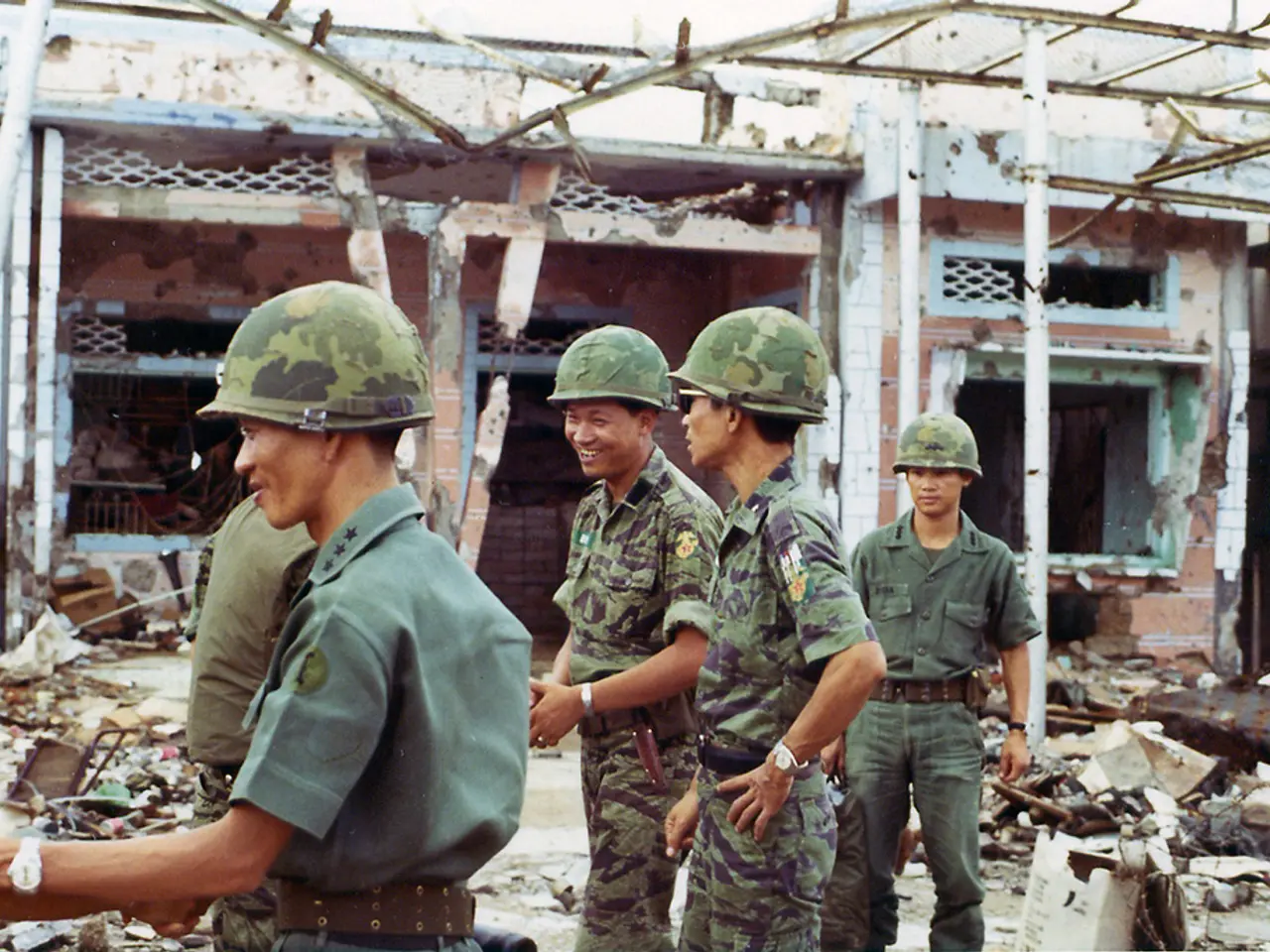Struggling Food Supply in a Sudanese Metropolis: Suggestions for Aid and Relief
The city of El Fasher, capital of North Darfur, has been under siege for over a year, trapped in a devastating conflict between the Rapid Support Forces (RSF) and the Sudanese Armed Forces (SAF). This prolonged assault has resulted in a severe humanitarian crisis, with around 25 million people across Sudan facing acute hunger and approximately 300,000 people in El Fasher at risk of starvation.
The conflict, which began in early 2023, has displaced approximately 12 million people within Sudan, leading to the deaths of around 150,000. The RSF has been accused of war crimes, as have the SAF, with the UN Human Rights Office monitoring and reporting on civilian casualties and violations of international humanitarian law.
Efforts to alleviate this crisis include calls for an immediate humanitarian pause to allow safe delivery of food, water, medicine, and other aid, as well as safe passage for civilians fleeing the conflict zones. The UN and international officials have strongly condemned deliberate attacks on civilians and displacement camps, emphasizing the obligation under international humanitarian law to protect civilians and provide unimpeded humanitarian access.
Repeated appeals have been made to both the RSF and the SAF to respect ceasefires, end the siege, and facilitate humanitarian operations, including reopening border crossings and removing bureaucratic barriers to aid delivery. The World Food Program (WFP) has not been able to deliver food assistance to El Fasher by road for over a year due to blocked roads.
Despite these efforts, intense hostilities have continued, causing large-scale civilian suffering, displacement, and deaths. Hundreds of thousands of civilians in El Fasher and surrounding internally displaced persons (IDP) camps are at risk of famine and disease due to the ongoing siege and conflict.
In recent months, the situation in El Fasher has worsened, with the RSF tightening the siege, making it difficult for anything to enter or leave the city. Many residents are resorting to eating hay or animal fodder due to the high cost of food.
The flow of aid needs to be larger than the flow of weapons in Sudan, according to the WFP. If the RSF wins in El Fasher, they would control almost all of western Sudan. The city of Tawila, around 40 kilometers (25 miles) away from El Fasher, has seen a massive influx of displaced people since April, and diseases like cholera and measles are now spreading there.
The ongoing conflict in Sudan has been described as the world's largest humanitarian crisis by the UN, with the UN Secretary-General Antonio Guterres calling for a weeklong ceasefire in Sudan to allow aid into El Fasher. However, the RSF has yet to consent to this call.
The international community is urged to increase attention and engagement with Sudan to help alleviate this crisis. The US has postponed a meeting about Sudan that would have brought together Saudi Arabia, the United Arab Emirates, and Egypt, but the meeting is now rumored to be rescheduled for September.
[1] UN OCHA, "Sudan: Humanitarian Bulletin (Issue 11, 2025)", link [2] UN OCHA, "Sudan: Humanitarian Bulletin (Issue 10, 2025)", link [3] UN Human Rights Office, "Sudan: Human Rights Situation", link [4] WFP, "Sudan: Humanitarian Crisis", link [5] Reuters, "Sudan: Calls for Humanitarian Pause Amid Ongoing Conflict", link
- The prolonged conflict between the Rapid Support Forces (RSF) and the Sudanese Armed Forces (SAF) in El Fasher has been described as the world's largest humanitarian crisis by the UN.
- The UN Secretary-General Antonio Guterres has called for a weeklong ceasefire in Sudan to allow aid into El Fasher, but the RSF has yet to consent to this call.
- The flow of aid in Sudan needs to be larger than the flow of weapons, according to the World Food Program (WFP).
- The UN Human Rights Office has been monitoring and reporting on civilian casualties and violations of international humanitarian law in the conflict between the RSF and SAF.
- Efforts to alleviate the humanitarian crisis in Sudan include calls for an immediate humanitarian pause to allow safe delivery of food, water, medicine, and other aid, as well as safe passage for civilians fleeing the conflict zones.




